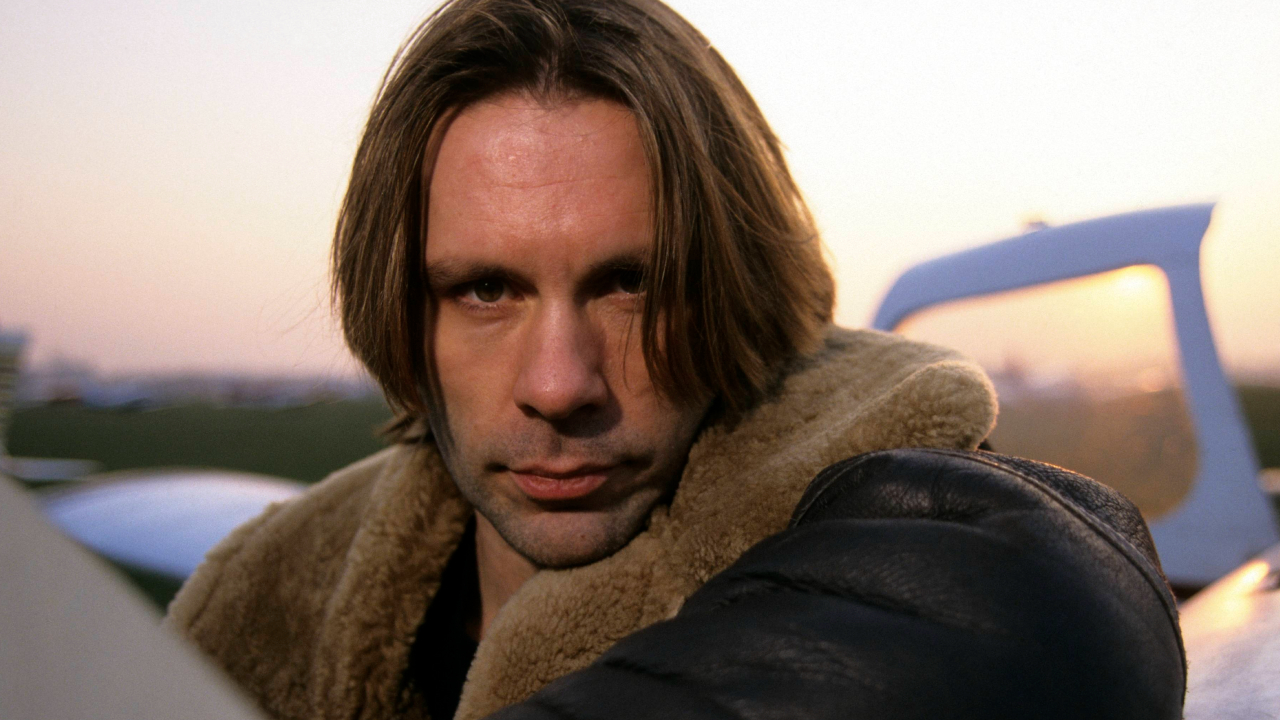Shrapnel Records: The House That Shred Built
In the 1980s, Shrapnel Records was home to the most outrageous, speediest and ludicrous guitarists the world has ever seen. This is the story of the fastest record label on the planet.
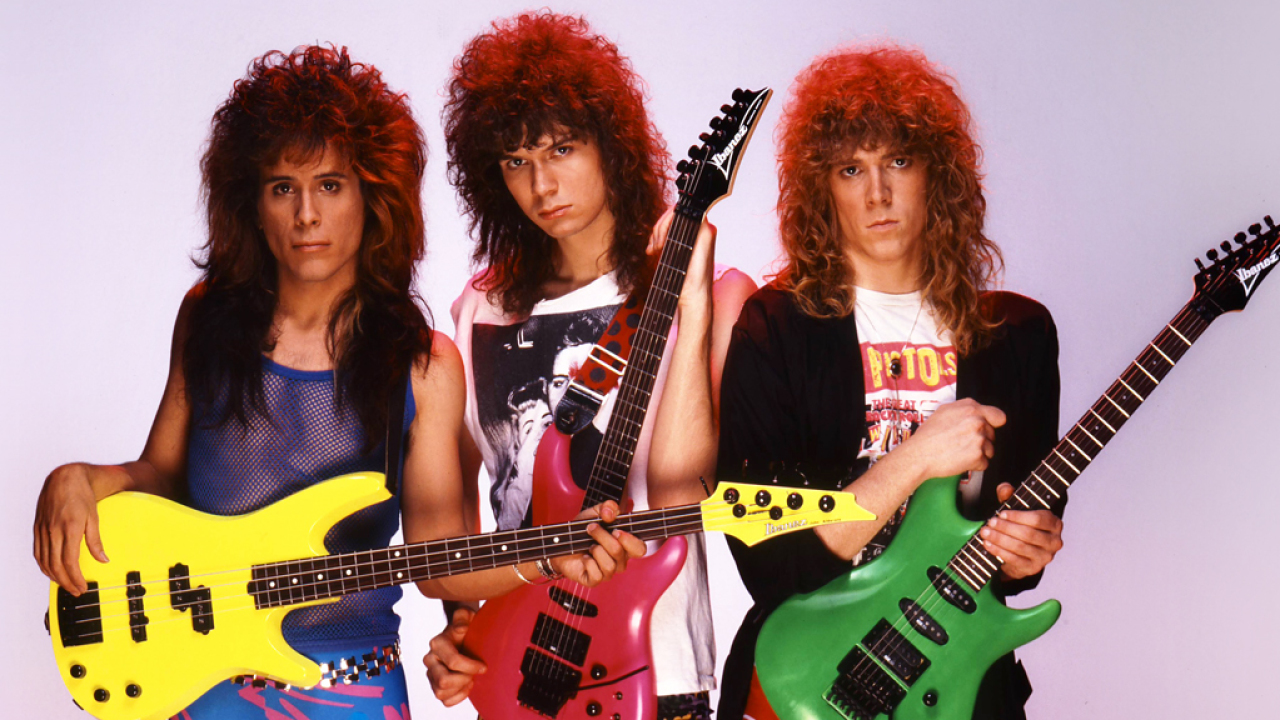
Select the newsletters you’d like to receive. Then, add your email to sign up.
You are now subscribed
Your newsletter sign-up was successful
Want to add more newsletters?

Every Friday
Louder
Louder’s weekly newsletter is jam-packed with the team’s personal highlights from the last seven days, including features, breaking news, reviews and tons of juicy exclusives from the world of alternative music.

Every Friday
Classic Rock
The Classic Rock newsletter is an essential read for the discerning rock fan. Every week we bring you the news, reviews and the very best features and interviews from our extensive archive. Written by rock fans for rock fans.

Every Friday
Metal Hammer
For the last four decades Metal Hammer has been the world’s greatest metal magazine. Created by metalheads for metalheads, ‘Hammer takes you behind the scenes, closer to the action, and nearer to the bands that you love the most.

Every Friday
Prog
The Prog newsletter brings you the very best of Prog Magazine and our website, every Friday. We'll deliver you the very latest news from the Prog universe, informative features and archive material from Prog’s impressive vault.
In early 1981, aspiring musician Mike Varney released a compilation album on his newly formed label, Shrapnel Records.
The record was titled U.S. Metal Guitar Heroes, and its absurd cover depicted a brutal battle scene in which long-haired soldiers in green army uniforms used Fenders and Gibsons to stab, beat and crush enemy soldiers – ones without guitars. The music on the record was no less lurid. It featured a range of unknown American bands, including Chumbi, a group notable for a vocalist whose falsetto could strip paint; the NWOBHM-inspired Exxe; and New Yorkers The Rods, whose bluesy bluster ensured they were the sole band on the album to have a career beyond it.
Even the most skilled fortune teller would have been hard-pushed to predict that within five years, Shrapnel would become one of the most influential labels around, ushering in a new breed of guitar hero and helping to redefine the sound of rock in the 1980s. The men – and occasionally women – that Varney discovered were single-minded in their dedication to their chosen instrument, taking the art of guitar-playing to ever higher and sometimes more ludicrous levels. They were dubbed ‘shredders’, a sobriquet evident to anyone who heard their 1,000 notes-per-second approach. Yngwie Malmsteen, Marty Friedman, Paul Gilbert… names recognisable to students of 80s guitar history, along with countless others who have slipped down the back of the sofa of history.
“Mike really had his finger on the pulse, with all the players of the day,” says Tony MacAlpine, a guitarist and keyboard player who made his name on the label during its heyday. “He was able to connect different players together quite easily.”
Viewed from the vantage point of today, Shrapnel’s success is slightly surreal. But for a few years, it was the fastest label on earth.
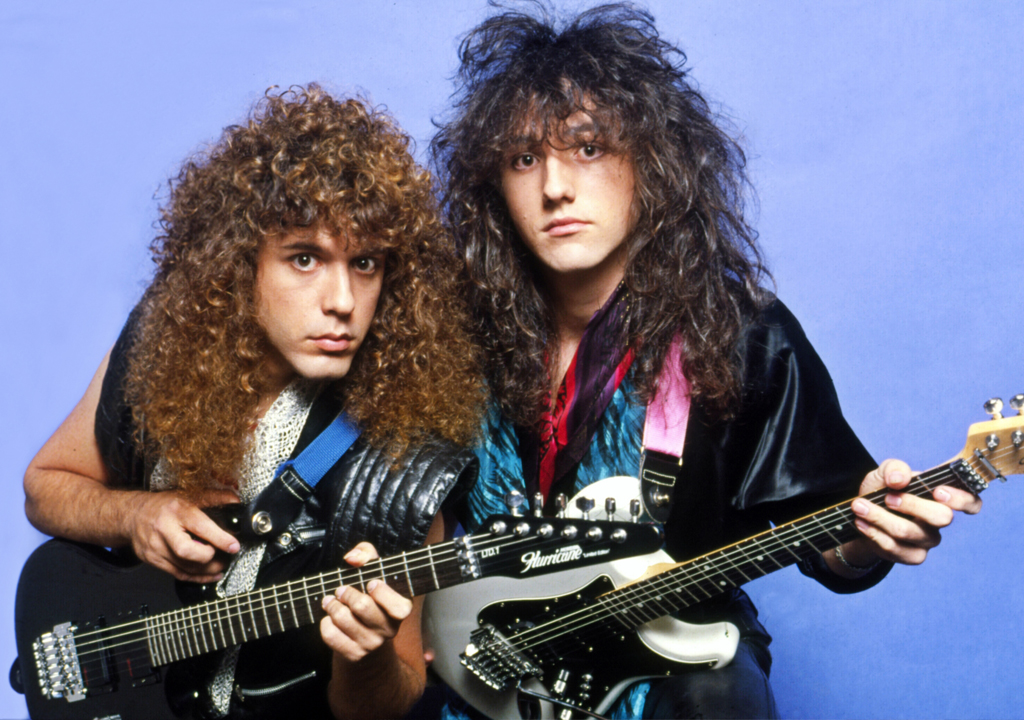
Mike Varney started playing music as a teenager in the late 70s, first as bassist in punk rock band The Nuns and later as guitarist in The Rocky Sullivan Band. When the latter supported Budgie at the Whisky A Go Go in 1978, the 20-year-old Varney impressed watching Jefferson Starship vocalist Marty Balin. Within days, Balin’s people contacted Varney to ask if he wanted to co-write a musical, Rock Justice. The show was well received, but the subsequent soundtrack album tanked – although the healthy advance he’d bagged as co-producer would help fund a new label, Shrapnel.
Mike Varney: I wanted to get married and I thought, “If I get a record deal, I have to leave this woman that I love for six months out of the year. How can I do what I like and stay here?” I figured, “I play guitar pretty well. I’m going to find ten guys that can wipe the floor with me and see what happens.” I took the money from Rock Justice and got a loan from my father and started Shrapnel.
Sign up below to get the latest from Classic Rock, plus exclusive special offers, direct to your inbox!
Tom Wheeler (editor-in-chief, Guitar Player magazine): At that time, there was not a great deal of enthusiasm for heavy metal on the staff of Guitar Player at the start of the 80s. So Mike started doing his Spotlight column, where he reviewed unknown guitarists. We were aware that this was an opportunity for him to solicit artists for Shrapnel. That was the biggest sticking point. But I felt that if there were any disadvantages, they were outweighed by the advantages.
Mike Varney: I wanted to put out records of great unsung guitarists. Back then most places had a local music magazine. I’d get the editor on the phone: “Hey, I’m looking for the greatest guitar players in the US. Think you have somebody in your part of Texas?” These magazines started running ads for free and people started sending me tapes. That and the Spotlight column led to the U.S. Metal compilations.
Paul Gilbert (Racer X/solo guitarist): Mike was talking about his U.S. Metal albums in an article. He said he was still looking for more people and he promised to reply to anyone who sent a tape.
Marty Friedman (Hawaii/Cacophony/solo guitarist): I blindly sent a demo to Mike. He liked it, but it didn’t have enough lead guitar. Mike said: “Overplay as much as you possibly can and send it back to me.” So I sent him a version of one of the songs and I totally overplayed. He said: “This is great! I’m going to put it on a record!” And he did.
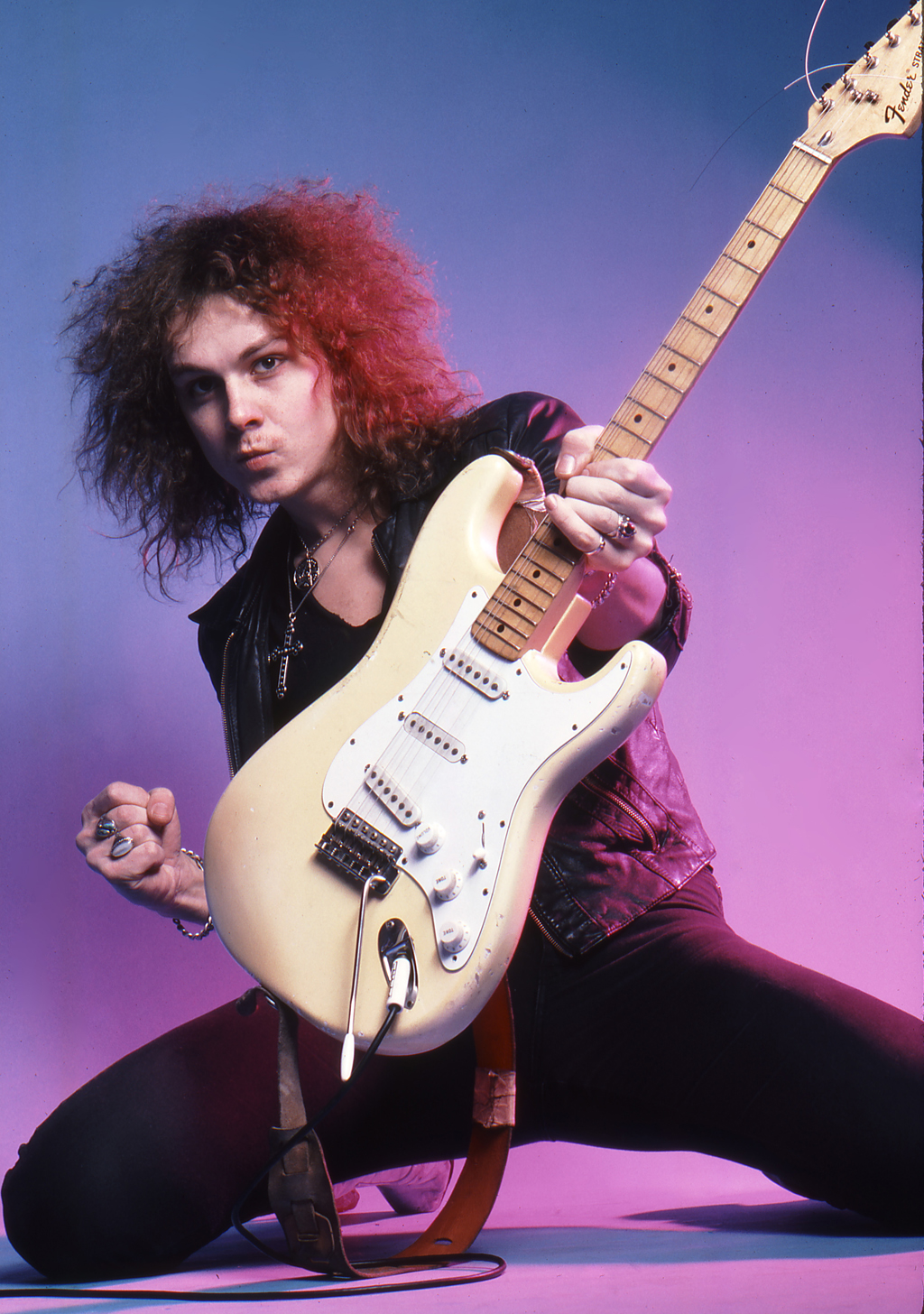
Friedman’s first band, Vixen, appeared on 1982’s U.S. Metal Vol. II and, after changing their name to Hawaii, featured on the follow-up, Vol. III, later the same year. But Varney’s most significant discovery came when he received a tape from a young, ambitious Swedish guitarist named Ynwgie Malmsteen.
Mike Varney: When I heard Yngwie, I couldn’t believe it. He was playing classically influenced guitar parts at incredibly fast speeds. I knew right away he would be the next guy to have the greatest influence on American players.
Ynwgie Malmsteen: I said: “Fuck it! I’ll try sending a tape off.” I didn’t expect anything, but Mike Varney called and said: “Pack your shit and come on over!” I had a band, a girlfriend, a cat, a studio. I said: “Okay. Fuck it. I’m in.” Like a Viking, you know?
Mike Varney: [Singer] Ron Keel was looking to put together a band with a lead guitar player who was extraordinary, so I suggested Yngwie and he said: “Yeah, this guy’s great.” That was Steeler.
Ron Keel (Steeler singer): The album [1983’s Steeler] is a cornerstone of that era. But Yngwie and I were both too stubborn to compromise, and it wouldn’t have mattered anyway – he would still have quit to join Alcatrazz when he got the call from [ex-Rainbow vocalist] Graham Bonnet, no matter what the situation might have been.
Mike Varney: I knew Yngwie was too ambitious to stay with Shrapnel for long. So he just went and the rest is history.
Within months, Malmsteen had bailed on both Steeler and Shrapnel. But Varney now had the credibility to transcend his image as the ‘compilations guy’, and he was flooded with demos from budding shredders. As label boss, he kept things quick and cheap. A friend let him hire out Prairie Sun, a studio in Sonoma County, just outside LA, for reduced rates, where Varney himself acted as producer.
Mike Varney: I did everything from signing bands to studio production, so the label was profitable out of the box. We didn’t sell a ton of records, but we sold enough to make a little bit of money.
Marty Friedman: It was a total seat-of-the-pants operation. Look at the album covers! My band Hawaii’s album cover for One Nation Underground was such a disaster that it’s hilarious. There was no money at all for artwork or anything else. It cost eight hundred dollars for the whole thing.
Mike Varney: We came up with the ‘100 hour Shrapnel Challenge’, where a band had to record and mix a record in a hundred hours. Some people say you can’t even mix a record in a hundred hours. We proved them wrong.
Marty Friedman: There was nowhere else to go because there was no one doing really heavy music at the major labels. Even at the indies, there was almost nothing.
Mike Varney: Stuff kept coming to me. Tony MacAlpine became one of our senior artists, but he originally sent me demos of him with a band, which would start off with a metal riff, and then a singer came in screaming, incredibly out of tune. I kept getting this tape, and would go: “Oh no, it’s that guy again.” Then finally, he sent me these instrumentals and they just blew me away.
Tony MacAlpine (solo guitarist/keyboardist): When he called, I thought it was a friend playing a joke. But he wanted me to move to the West Coast. It was something I had to think about. I was busy as a piano major in college and relocating from Massachusetts to San Francisco was a big step for me.
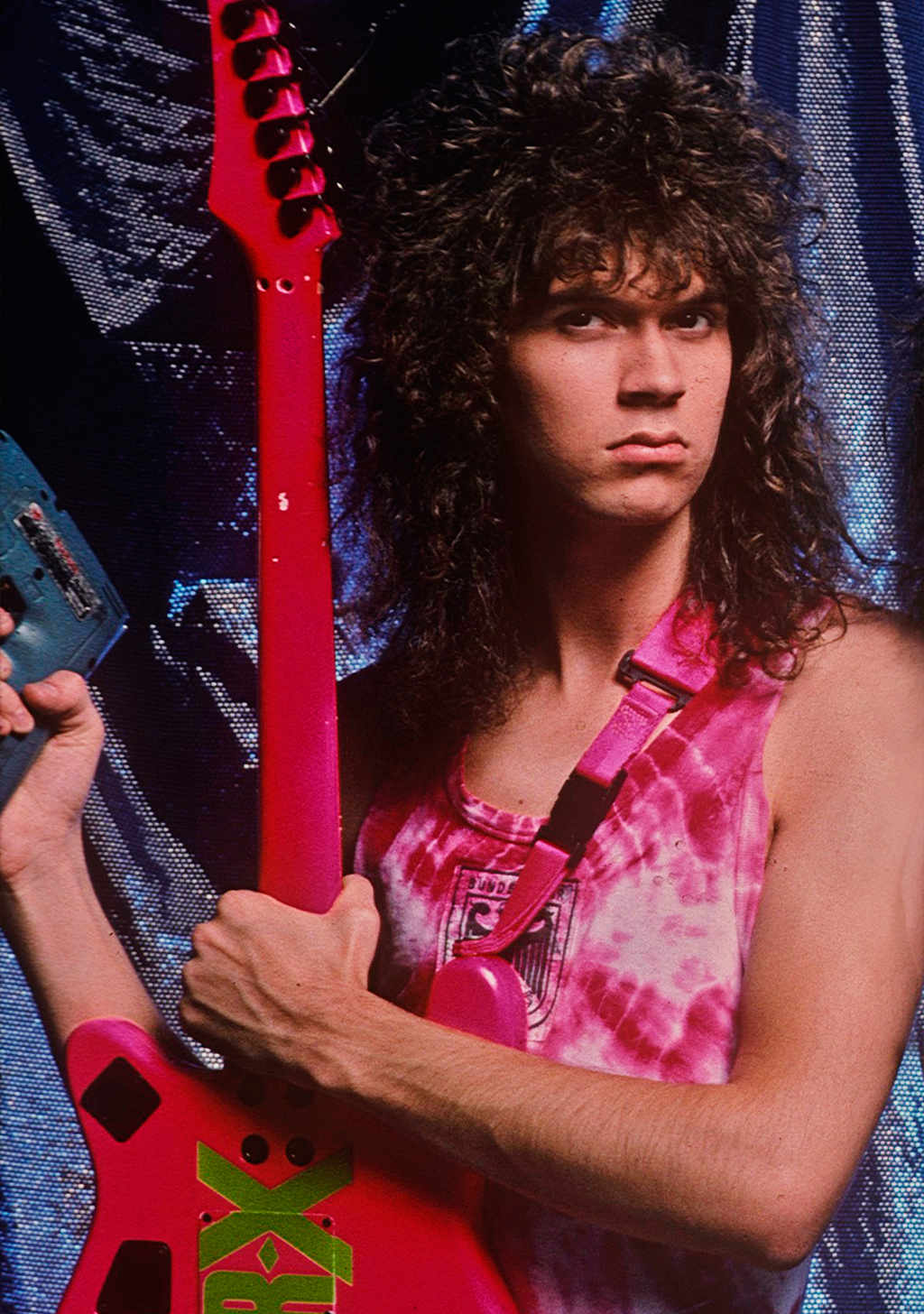
As Shrapnel’s roster grew, so did the label’s reputation as the home to hotshot young guitarists out to take six-string virtuosity to new levels. Varney’s column for Guitar Player became a showcase for new talents – many of whom would end up part of the Shrapnel stable.
Paul Gilbert: Not long after Randy Rhoads passed away, I contacted Mike. I was only 14, but I knew how to play a lot of Randy’s songs and I was precocious enough to think I might be able to join Ozzy’s band. I sent Mike a tape of my playing, and he said: “I don’t think Ozzy wants a fourteen-year-old guitarist. But you know what? I really like your playing, so send me some of your original music and maybe we can do a record.”
Vinnie Moore (Vicious Rumors/solo guitarist): Mike’s column was the key for me. I was featured in the January 1985 issue. That led me to playing on this Pepsi commercial. The storyline is that this delivery guy shows up with pizza and bottles of Pepsi, but no one has a bottle opener. So I start going nuts on the guitar and the bottle caps fly off. It was improvised shredding.
Paul Gilbert: When Mike heard the demos I was making, he would often say: “There’s not enough guitar.” I wanted to be more like Van Halen, where it was more about the songs. Mike said, “You’ve got all your life to do that. Fill every hole with guitar and make it intense.”
Tony MacAlpine: I played on two of Vinnie Moore’s records, and I produced a Joey Tafolla record, which had Paul Gilbert on it. Shrapnel became like a commune. We built up this scene by putting out all these records. It was word of mouth.
In addition to solo guitarists, Varney nurtured a handful of bands. Cacophony brought together Marty Friedman and Jason Becker, while Racer X showcased the talents of Paul Gilbert.
Paul Gilbert: When Racer X were working on Street Lethal [in 1986], those were our ‘starving artist’ days. Our bass player was packing candy in a factory. We’d survive off free candy. I sometimes wonder if that’s why we played so fast, because we were always on a sugar high.
Marty Friedman: The first Cacophony album [1987’s Speed Metal Symphony] was going to be my solo record. It was 80 or 90 per cent written, and I was just about to go into the studio to record it when Varney came up to me with this tape of Jason, saying, “You’ve got to hear this 16-year-old kid!” I had Jason come to my apartment just to humour Mike, and I fell in love with the dude. If I played some of my stuff, which was absolutely the most perverted guitar stuff that no one could ever play, he could play it back to me.
Mike Varney: Some of the bands had lyrics that made me wary. There was a time when if you put some demon on the cover and called it Wretched Beast, that would be good for 5,000 records or so. I had younger people buying the records and I didn’t want to put that kind of stuff in their hands. I was trying to appeal with the purity of the talent and the music.
Marty Friedman: People were up in arms about graphic music. Mike probably didn’t want to get sued. Also, Mike was afraid of dark, discordant, hellish music and that’s something I fought to keep in Cacophony. We were into this dark, scary Stravinsky, Philip Glass-type stuff, breaking new boundaries with what electric guitars could do. If it got too discordant, Mike’s face would get red and he’d start rubbing his temples, saying, “I don’t know about this, man. It’s pretty evil.” And then we’d know we were on to something good.
Mike Varney: A lot of those guys didn’t do a lot of touring on their own. Labels who were interested would say, “I want to see the band live,” and I’d tell them, “I don’t care.” I never saw myself being anything other than a producer. More of a producer than a label.
Marty Friedman: There was no social media so all you had was what the record company did, which with Shrapnel was zero. Mike would get the record out and that would be it. I don’t blame him as a businessman for working that way because he was doing what he loved and making money off his investment. But you’d see all the other bands on major labels getting ads in magazines, shooting videos and getting tours. We had none of that.
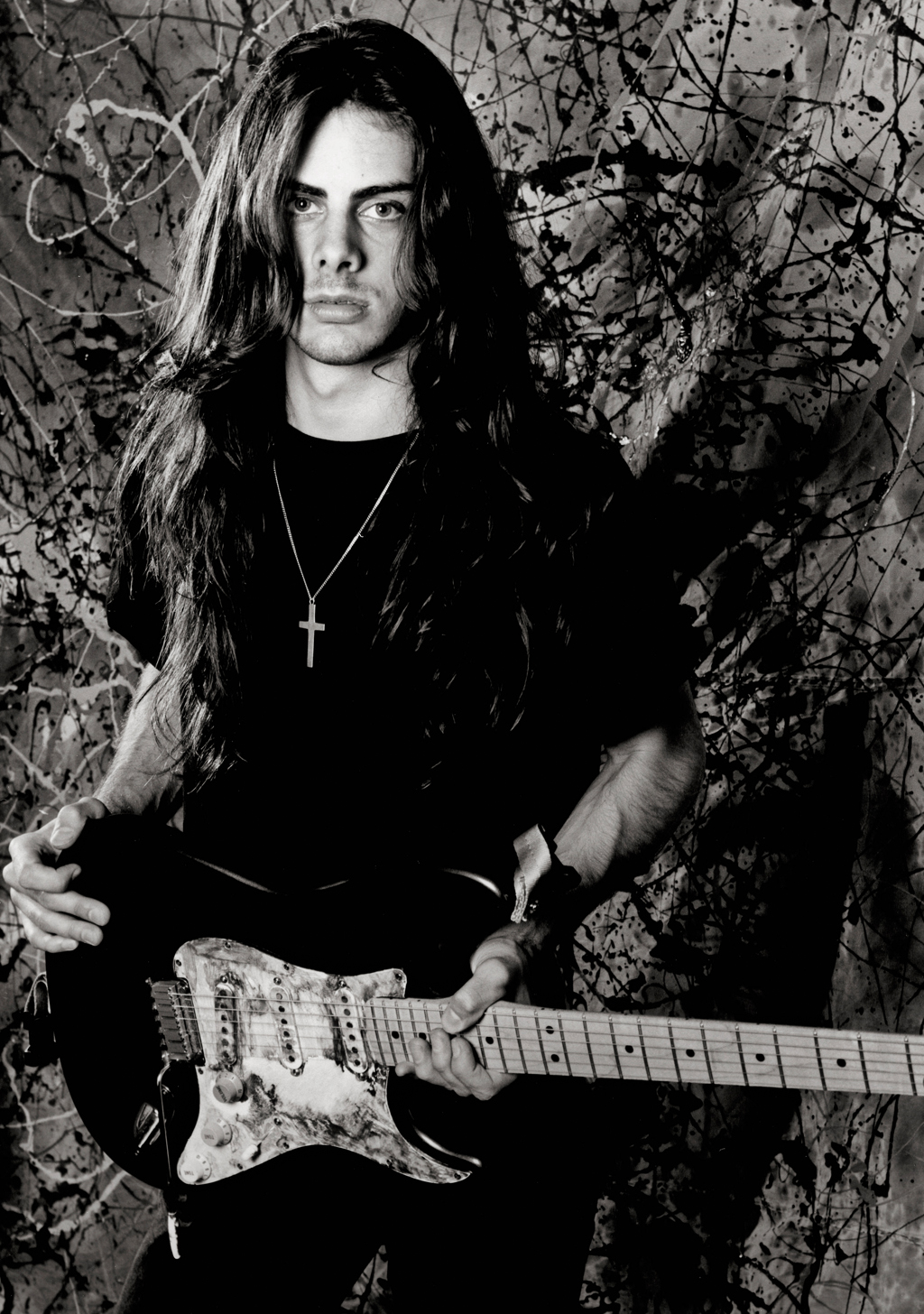
Non-Shrapnel artists Joe Satriani and Steve Vai were the ‘respectable’ faces of the guitar scene, but the Shrapnel stable had youth and excitement on their side. By the late 80s, Gilbert, Friedman, MacAlpine and the rest had been joined by the quicksilver-fingered likes of Jason Becker, Greg Howe and a teenage prodigy from Philadelphia named Richie Kotzen.
Richie Kotzen: There was a manager in Philadelphia who was interested in me and he was trying to convince me not to take a deal with Mike. He was trying to explain to me and my parents that I shouldn’t be an instrumentalist. He said: “I picture Richie more like a Debbie Gibson.” Fast- forward to Mike’s house. I’m sitting there with my dad and my mom, and my dad goes, “I picture my son more like a Debbie Gibson.” I wanted to crawl up into a little hole and die.
Mike Varney: Kotzen had so much charisma and so much going on for him as a guitar player. He played all the music on his first solo record. After that I said: “Man, I gotta get you singing.” He was open to it. And look at him now.

For much of the 80s, Shrapnel had been an exclusively male label. That changed when Varney signed Phantom Blue, an all-female band featuring guitarists Michelle Meldrum and Nicole Couch, the latter a student at the Guitarist Institute Of Technology who had been taking lessons with Paul Gilbert.
Nicole Couch (Phantom Blue): Mike told me he never had coffee or drank a Diet Coke in his life. We were like, “What?!” We weren’t hellraisers ourselves, but we were a crude bunch of girls. One day Richie Kotzen came in the studio and Michelle says: “Richie, how’d you get in those pants? They’re so tight.” He was completely embarrassed.
Varney: I liked their songs, but I thought they needed something else, so I suggested they write with Marty. And they came up with Why Call It Love?.
Nicole Couch: It was more of a ballad than we were used to. But it was still a good song. We weren’t the prettiest band. There were a lot of guys out there prettier than us. But being women, we got lots of people to come to our shows. We’d pass out fliers on Sunset Strip and people were like, “Oh, chicks!” We were like, “Yup. Check us out.”
Couch and her bandmates may have been wild, but they were the exception. For the most part, Shrapnel’s artists were as well behaved as their boss. Drinking was minimal and drug use non-existent.
Richie Kotzen: I don’t think any of us partied at all. We were all so disciplined in trying to elevate our game. A lot of us were from different cities, so we didn’t get together for drinks or anything.
Paul Gilbert: The main thing we did was go bowling and play Scrabble. It was pretty nerdy, but then we’d strap on the guitars and musically kill people. That made us feel pretty good.
Mike Varney: When I met them, a lot of these guys were on their first girlfriends, and some married them. Girls were not the focus for most of them.
Marty Friedman: We didn’t do drugs but yeah, we hooked up with plenty of girls. The audience would be at least half chicks, so we dolled up because that’s what these girls were into. We knew that if we looked like Poison, it didn’t matter that we were playing progressive, insane, guitar-heavy music. After the show, each member would hook up with a girl or more and plan on meeting the next morning to take off for the next city. It meant we’d get laid and we didn’t have to pay for a hotel.
Paul Gilbert: I had always hoped that would happen to us, but I was so nerdy that after the show I’d immediately grab my guitar and start working on the stuff that I thought I didn’t play well enough. I didn’t know what to do, so I wasn’t as nearly as successful in that area as I would have liked to have been. But at least I got good at guitar.
As Shrapnel’s profile grew and an increasing number of shredders began to reveal their secrets on instructional videos, the floodgates opened. Budding guitarists began to value speed and dexterity over emotional expression. By the end of the 80s, the scene had turned into an absurd musical arms race to see who could be the fastest player around.
Mike Varney: It got ridiculous. I’d have guys calling me up saying: “I can play Flight Of The Bumble Bee at two hundred and forty bpm,” or, “I think I’m the fastest guitar player in the world right now.” I’d say: “Yeah, but can you play with the tastefulness and musicality of Richie Kotzen or Paul Gilbert?”
Paul Gilbert: There was an athletic spirit to it all. And I’m much more of a fan of music than I am of sports, so I could only endure it for so long. I just got tired of the sound people were after and the way I sounded. I looked outside of the box to find other avenues I could explore musically, which led me to join Mr. Big.
Richie Kotzen: Everyone was playing the same songs and masquerading what they were doing as art, but it was pretty much them vomiting whatever the other popular bands were doing. From my perspective, I was doing something artistic and relevant, and I never got involved in that other stuff.
If Shrapnel was a product of the 80s, it was also a victim of that decade’s passing. By the early 1990s, grunge had wiped the slate clean, and the sort of high-end musical proficiency purveyed by Shrapnel had been declared passé.
Mike Varney: Grunge put a lot of my artists out of business because nobody wanted guys that could play really well, or even looked pretty with long hair. You had to look like you woke up and rolled out of bed and decided to start playing guitar, rather than that you spent some time in front of a mirror. I don’t know too many things in life where people are praised for having less skill.
With the rise of grunge, and subsequently pop-punk and nu metal, it was clear that Shrapnel’s heyday was over. The label’s golden generation had vanished to the four winds. Paul Gilbert formed Mr Big, Marty Friedman joined Megadeth, Richie Kotzen signed up for Poison and Jason Becker threw in his lot with David Lee Roth’s solo band, before he was diagnosed with ALS and forced to retire. Thanks to a mix of canny business decisions and a sheer love of music, Mike Varney has kept Shrapnel going to this day, even if his roster long ago diversified away from the shredders with which he made his name.
Marty Friedman: There’s really no other Mike Varney. His passion for what he does is unbelievable. When we first started working together, he would constantly call me up at all hours and play me tapes of these other guitar players over the phone. I can’t really think of anybody who has that kind of love for guitar first of all, and just music in general.
Mike Varney: I was always trying to build a better mousetrap. You know, put this guy with this guy. And that’s one of the things that kind of differentiated Shrapnel from other labels.
